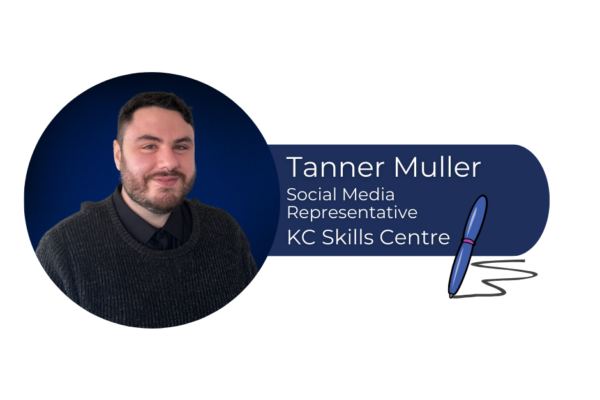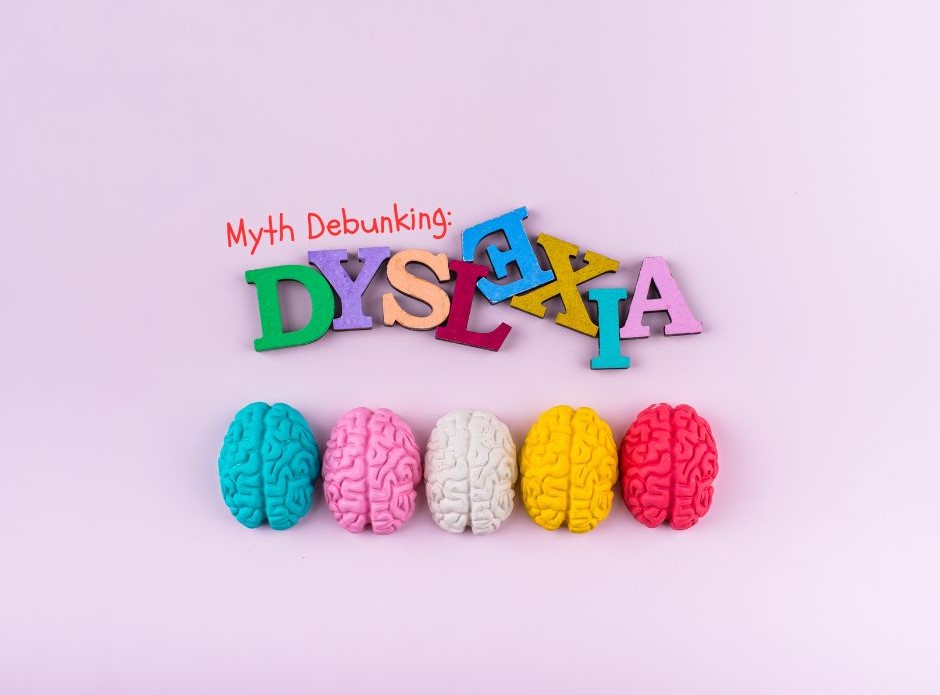Dyslexia is a condition that is often shrouded in misunderstanding, and as a result, can obscure the experiences of those living with it.
It encompasses a range of challenges relating to reading, writing, and language processing – affecting people in diverse and unique ways. In this article, the KC Skills Centre debunk some of the common misconceptions of this condition and hope to promote a deeper understanding of its nuances.

Myth: Dyslexia is just reversing letters
Many people mistakenly believe dyslexia is solely about mixing up letters or numbers. While this can occur, the condition encompasses a range of challenges. It is essential to recognise the difficulties experienced by individuals with dyslexia are complex and varied, going far beyond simple letter reversal.
Myth: Dyslexia is related to intelligence
Another prevalent myth is that dyslexia equates to lower intelligence. In reality, dyslexia can occur in individuals across the entire spectrum of intelligence. Many people with the condition are exceptionally bright and capable, excelling in creative and problem-solving areas. Their unique strengths shine in a variety contexts, highlighting the need to separate dyslexia from assumptions about cognitive ability.
Myth: Dyslexia can be outgrown
Some believe that children with dyslexia will eventually outgrow the condition. While some children may show improvement over time, dyslexia is generally a lifelong condition. Although early intervention, support, and tailored strategies can help individuals manage these challenges, dyslexia typically continues into adulthood, requiring ongoing understanding and accommodation.
Myth: Dyslexia is a vision problem
A common misconception is that dyslexia is primarily a visual issue. While some individuals may experience visual stress or difficulties with tracking text, dyslexia fundamentally relates to language processing. It arises from differences in how the brain interprets written and spoken language, rather than from visual perception problems.

Myth: Lack of motivation causes dyslexia
There is a harmful stereotype that individuals with dyslexia are simply unmotivated or lazy. In truth, many work significantly harder than their peers to achieve similar academic results. The cognitive effort required to read and write can be exhausting, and it is important to recognise the determination and resilience demonstrated by these individuals.
Myth: All dyslexics read the same way
Dyslexia is not a uniform condition; it manifests differently for every individual. Some may struggle primarily with phonetic decoding, while others may find comprehension or fluency to be their biggest challenges. Understanding this variability is crucial for providing tailored support and interventions that meet the unique needs of each person.
Myth: Poor teaching causes dyslexia
While effective teaching methods can significantly impact learning outcomes, dyslexia is not caused by inadequate educational environments. It is a neurological condition rooted in the brain’s processing of language. Recognising this can help advocate for appropriate interventions, highlighting the importance of specialised teaching strategies.

By dismantling some of the myths surrounding dyslexia, we can begin to advocate for effective interventions tailored to individual needs. Recognising the complexities of this condition, and the strengths of those who live with it, is also essential in furthering empathy and understanding. Supporting organisations, such as the KC Skills Centre, embrace the diversity of learning styles that enrich our communities.
Interested in learning about what it takes to support someone with a learning disability? See our Introduction to Support Work course for training about in-home and community care.


